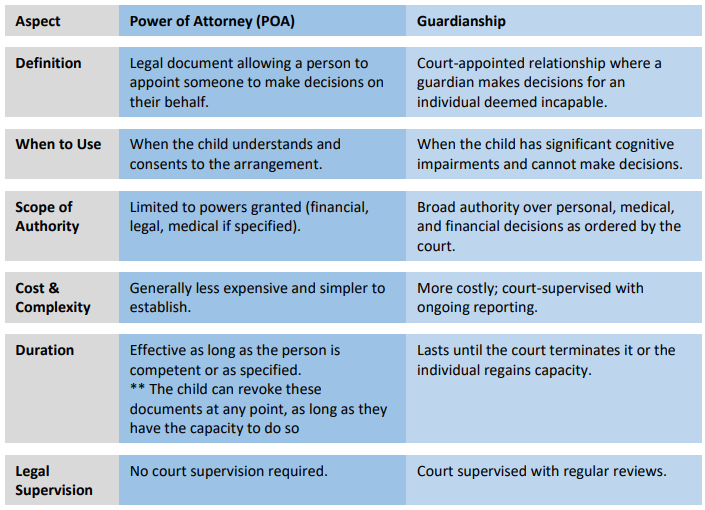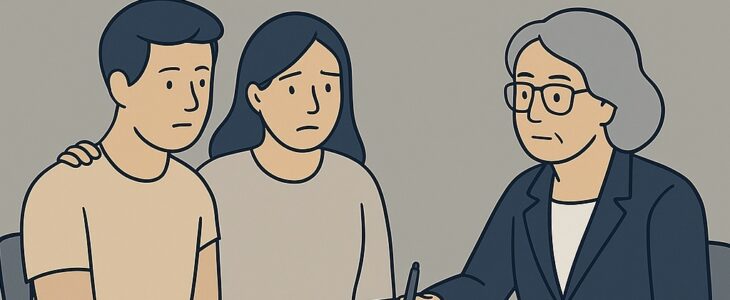Special Needs Legal Planning: Guardianship vs. Power of Attorney in NY
Understanding Legal Capacity in New York
When a child with a disability turns 18 in New York, they are legally considered an adult—regardless of cognitive ability. This transition can be both empowering and overwhelming for families. The key question: Does your child have the capacity to make legal decisions, or is guardianship necessary?
What Is Legal Capacity?
Legal capacity means having the ability to understand and appreciate the consequences of a legal decision, such as signing a Power of Attorney (POA) or Health Care Proxy. In New York, adults are presumed competent unless proven otherwise.
Examples of Capacity:
- Your child can explain, in their own words, what a POA or Health Care Proxy does.
- They consistently make informed choices in daily life.
- A medical professional or attorney confirms their understanding.
If your child cannot understand or appreciate these decisions, a court-appointed guardianship may be required under Article 17-A or Article 81 of NY law. You can be that Guardian!
Legal Options: Power of Attorney vs. Guardianship
Choosing the right legal structure protects your child’s independence and ensures you can support them effectively. Here’s a side-by-side comparison:

Practical Tips for Parents
- Consult a medical professional to assess your child’s ability to understand legal documents.
- Speak with a special needs attorney to evaluate your child’s comprehension and discuss your options.
- Involve your child in the decision-making process as much as possible, respecting their autonomy and preferences.
- Review resources like the NYS Office for People With Developmental Disabilities and NY Courts Guardianship Information for guidance and support.
What Happens If You Wait?
Delaying legal planning can lead to serious, real-world consequences:
- Medical Emergencies: Without a POA or guardianship, doctors may be unable to share information or accept your input during emergencies.
- Financial Barriers: Banks and financial institutions will not allow access to your adult child’s accounts without proper legal authority.
- Loss of Benefits: Delays can result in missed deadlines for government benefits or services.
- Family Stress: Legal hurdles can create confusion and anxiety during critical moments.
Acting early ensures your child’s well-being and your peace of mind.
Frequently Asked Questions
1. Can my child with a disability sign a Power of Attorney in NY?
Yes, if they understand what the document does and can communicate their wishes.
2. What is the difference between Article 17-A and Article 81 Guardianship?
Article 17-A is for individuals with intellectual or developmental disabilities; Article 81 is for adults with diminished capacity due to illness or injury.
3. What if my child’s capacity changes over time?
Legal arrangements can be revisited as your child’s needs and abilities evolve.
4. Are there alternatives to guardianship?
Yes. Supported decision-making and limited POAs may be appropriate in some cases.
5. Where can I find more information or support?
Visit the NYS Office for People With Developmental Disabilities or consult with a special needs attorney.
Take Action: Protect Your Child’s Future Today
Don’t wait until a crisis occurs. Early legal planning empowers your child with a disability, safeguards their rights, and ensures you can support them when it matters most.
Contact Sverdlov Law PLLC today at www.sverdlovlaw.com or 212-709-8112 for a FREE evaluation of your case and create a plan tailored to your family’s needs.


